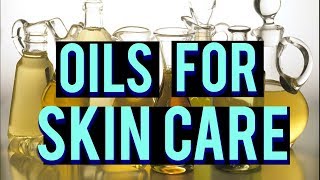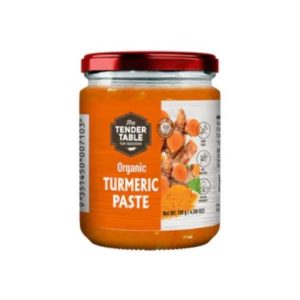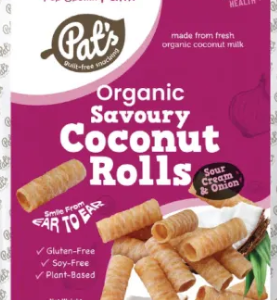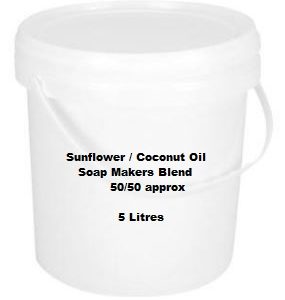OILS & YOUR SKIN
Oils that are good for the skin, like coconut oil, can provide moisture to parched skin and delay some signs of aging. Oils are a little different than lotions, and you might find that certain oils make your skin look and feel better.
The following article discusses how 6 well known oils can have health benefits for the skin, and how best to use them in your moisturizing and skincare routine.
Coconut Oil – Extra Virgin or Refined
Research suggests that coconut oil has anti-bacterial, antioxidant, and wound-healing properties.
It can also help reduce inflammation and enhance skin barrier function.
Avocado Oil – Cold Pressed, Extra Virgin
What are the benefits of Avocado Oil for skin?
This nourishing plant oil is rich in essential fatty acids that hydrate and soften the skin and protect it from moisture loss and dehydration. It also helps rebalance and comfort delicate skin. The oil is high in vitamins A, B, C, D and E, as well minerals such as iron, magnesium, copper and potassium. Together, these properties help to regenerate the skin, keep it hydrated, work to fight free radicals and promote collagen production. Avocado Oil also minimises inflammation and can calm dry, itchy skin, making it a great ingredient for dry, sensitive or problematic skin.
Olive Oil – Extra Virgin or Pure Refined
According to animal and human studies, olive oil may have anti-inflammatory, antioxidant, and wound-healing effects when applied topically.1 There’s also a possible link between topical application of olive oil & anti-aging effects.
Sunflower Seed Oil – Cold Pressed, Extra Virgin
There’s evidence that sunflower seed oil may help improve skin hydration and promote skin barrier repair.
Research also shows that it has anti-inflammatory effects and may help with wound healing.
Shea Butter – Cold Pressed or Refined
Shea butter is derived from the nut of the karité tree. This tree is native to the Sahel region of Africa.
Shea butter may be a good moisturizer for people who have sensitive skin. Small studies have found that people with atopic dermatitis or eczema see symptom improvement when using a shea butter moisturizer. Moisturizers containing shea butter have also shown good results in people with clinically assessed sensitivity to other skin care products.
Castor Oil
According to 2022 research Trusted Source, the main chemical composition of castor oil is ricinoleic acid, a potent fatty acid that can moisturize and protect your skin barrier.
Researchers found that castor oil has antimicrobial and anti-inflammatory properties. It can help to decrease pimples, soften skin, and reduce the appearance of large pores.
Additional benefits of using castor oil on your skin may include:
- Preventing wrinkles: Castor oil contains antioxidants that fight free radicals in your body. Free radicals are responsible for accelerating the aging process, making wrinkles appear sooner.
- Fighting acne: Castor oil has antibacterial properties. Bacteria on your face can clog pores and lead to acne.
- Reducing puffiness: Castor oil has anti-inflammatory properties, which can help reduce swelling and puffiness. It could also reduce the size of inflamed pimples or eye bags.
- Moisturizing: Moisture keeps your skin looking young and shiny. Moisture also prevents wrinkles.
- Soothing sunburn: Due to its anti-inflammatory properties, castor oil may ease the pain associated with sunburn. Its moisturizing qualities may also reduce peeling.
- Fighting dry lips: Castor oil is a very common ingredient in both lipstick and lip gloss. If you have dry lips, skip the color and use castor oil. But you may want to mix it with a better tasting oil, like coconut oil.
- Promoting overall skin health: Castor oil is full of healthy fatty acids, which are essential to maintaining good skin health.
How Oils Are Used for Skincare
Cosmetic and skincare companies frequently use natural oils as ingredients in their products. Natural oils are popular because many are gentler on the skin than synthetic ingredients. You’ll find natural oils in all types of products, including cleansers, moisturizers, face masks, soaps, face oils, serums, and more.
Many natural oils, like coconut oil, can be directly applied to the skin. However, you should be careful when using oils directly on your face—especially if you have oily or acne-prone skin.
Note that natural oils are not the same as essential oils. Essential oils should be diluted with a carrier oil because they are very potent and can cause irritation. Do a patch test on your skin when using any product for the first time to check for potential allergic reactions.
Most research looks at the effects of topically applied oils. Topical application means that they’re directly applied to the skin. That said, soaps and moisturizers are still an effective vehicle for natural oils.
Composition
Natural oils are so effective for the skin because they contain a host of ingredients including vitamins with anti-inflammatory and antioxidant effects, including:
- Vitamin A
- Vitamin C
- Vitamin E
- Vitamin D
- Polyphenols
- Flavonoids
- Botanical antioxidants
- Coenzyme Q10
- Omega-3 fatty acids
Benefits
Natural oils have a variety of research-backed benefits.
It is well known that many natural oils:
- Moisturize (keep the skin from losing moisture)
- Soothe the skin (have an emollient effect)
- Have antioxidant effects (prevent damage from free radicals)
- Have anti-bacterial properties
- Have anti-inflammatory effects
Barrier Repair
Evidence shows that many natural oils have a barrier repair effect. Oils with more linoleic acid than oleic acid may do a better job of repairing the skin barrier. Oils with more oleic acid may irritate the skin.
Reduces UV Damage
Sun damage can seriously impact the look of your skin. Natural oils won’t protect your skin from sun damage (you need sunscreen for that), but some may help reduce UV damage.
There’s a lot of research on natural oils for skincare and a lot of it is promising. However, more research is needed to better understand the role of natural oils on aging and skin health. More research on the potential adverse effects, like irritation, is also required.
Risks
Natural oils are great because they often don’t pose the same risk for irritation as synthetic chemicals in cosmetics and other skincare products. However, that doesn’t mean that using natural oils doesn’t pose a risk.
Because the skin on your face is more sensitive than on other parts of your body, you may experience irritation when using oils directly on your face as opposed to your arms and legs. Applying oils to your skin before going out in the sun can also increase your risk of sunburn.
There’s always a possibility of allergic reactions. If you notice redness or irritation after topically applying a natural oil, stop using it right away. Get emergency help if you experience swelling or hives or have trouble breathing. Those symptoms are signs of a dangerous anaphylactic reaction. Immediate treatment with epinephrine is needed. There is a risk of death with anaphylaxis, so call 111.
Summary
Natural oils like coconut oil, avocado oil, olive oil, sunflower oil and shea butter have properties that are good for your skin. Some can work as antioxidants or anti-inflammatory agents to promote healing of damaged skin, moisturize, reduce scarring, or treat skin conditions like acne.
Some natural oils can be irritating, while others may make you more likely to burn in the sun. For “after-sun” exposure skin care, using oils is a gentle, natural way to assist your skin to recover & rejuvenate itself.
It is also possible to be allergic to certain natural oils. Be sure to discuss these products with your healthcare provider before use.






